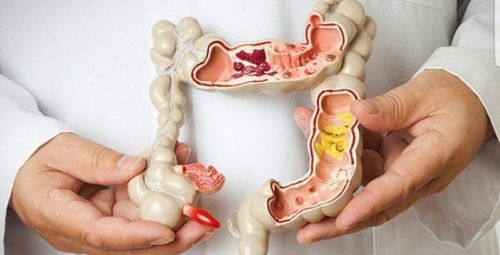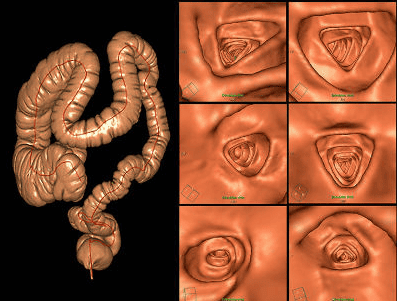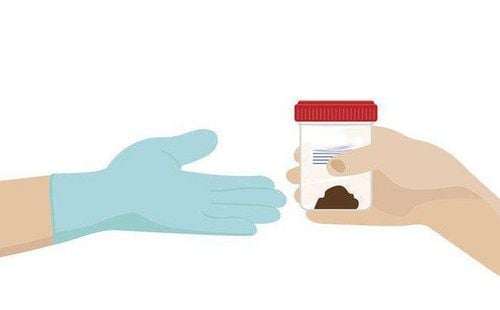This is an automatically translated article.
The article was written by Specialist Doctor I Nguyen Thi Minh Thuyen - Pathologist, Pathology Department - Vinmec Danang International General Hospital.When cancer is found early, when the lesions are small and have not spread, there are often more treatment options available. Moreover, regular and proper cancer screening will help detect precancerous lesions early, thereby providing a higher chance of survival for patients.
1. Can polyps and colorectal cancer be detected early?
Screening is the process of looking for cancer or pre-cancer in people who have no symptoms of the disease. Regular colorectal cancer screening is one of the best ways to prevent colorectal cancer.Regular screening can find colorectal cancer early, when it is small, not spreading, and can make it easier to treat. Regular screening can even prevent cancer. A polyp can take 10 to 15 years to develop into cancer. During screening, doctors can find and remove polyps before they have a chance to become cancerous.

2. Why is colorectal cancer screening important?
Colorectal cancer is the leading cause of cancer death for both men and women. The mortality rate from colorectal cancer has been gradually reduced by screening and removing colorectal polyps before they can develop into cancer.
When colorectal cancer is found at an early stage before it has spread, the 5-year survival rate is about 90%. When cancer has spread beyond the colon or rectum, survival rates are lower.
3. American Cancer Society (ACS) Guidelines for Colorectal Cancer Screening
3.1 For those at average risk
The ACS recommends that people at risk for colorectal cancer begin regular screening at age 45. The options are listed below:People who are in good health and have a life expectancy of more than 10 years should continue to have regular colorectal cancer screening until age 75. For those aged 76 to 85 years, the decision to screen should be based on desire, life expectancy, general health, and previous screening history. People over 85 do not need further screening. Colorectal cancer screening test options:
Stool tests: Screened for 1 to 3 years depending on the type of test Visual (structural) examination of the colon and rectum: Colonoscopy; CT scan (virtual endoscopy), flexible sigmoidoscopy (FSIG).

3.2 For those at high risk
People at high risk for colorectal cancer may need to start colorectal cancer screening before age 45, get screened more often, and/or have specific tests. These people have:
A strong family history of colorectal cancer or certain types of polyps A personal history of colorectal cancer or certain types of polyps A personal history of inflammatory bowel disease (ulcerative colitis) or Crohn's disease) Family history of hereditary colorectal cancer syndromes such as familial adenomatous polyposis (FAP) or Lynch syndrome Personal history of abdominal or pelvic radiation therapy to treat cancer before. The American Cancer Society does not have specific screening guidelines for people at high risk for colorectal cancer. Several other professional health organizations, however, have issued guidelines that divide people into groups (although the details depend on each person's specific risk factors).
People with one or more family members with colorectal cancer: Screening recommendations for these people depend on who in the family has cancer and age at diagnosis. Some people with a family history will be able to follow the guidelines for average-risk adults, but others may need colonoscopy more often and may begin before age 45. People who have had polyps removed during colonoscopy: Most of these people need a colonoscopy again after 3 years, but some people may need a colonoscopy 3 years earlier (or later) 3 years, depending on the type and size. and the number of polyps.

People who have had colorectal cancer: Most of these people will need to start regular colonoscopy within a year of surgery to remove the cancer. People who have had radiation to the abdomen or pelvis to treat cancer before: Most of these people need to start laparoscopy earlier (depending on their age at radiation therapy) and may need regular screening. more often than usual (eg at least once every 5 years). People with inflammatory bowel disease (Crohn's disease or ulcerative colitis): These people usually need a colonoscopy (not any other type of test) every 1 to 2 years, which starts earlier than usual. People with known or suspected genetic syndromes: These people often need endoscopy, at a young age, possibly as early as adolescence, for some syndromes - and need to be checked. performed much more often, depending on genetic syndromes and other factors. The best way to prevent and protect the health of you and your family is to get screened for cancer as soon as possible. Should be repeated every 6 months, 1 year, 2 years... Periodic and proper cancer screening will help detect precancerous lesions early, thereby providing a chance for cure.
Vinmec International General Hospital is one of the most prestigious and modern hospitals in Vietnam. Here, rectal cancer screening packages are provided to help customers be proactive and prevent the disease.
Please dial HOTLINE for more information or register for an appointment HERE. Download MyVinmec app to make appointments faster and to manage your bookings easily.
Article references source: American Cancer SocietyMORE:
Is colorectal cancer curable? Things to know about colorectal cancer What are colon polyps? Causes, symptoms and treatment














